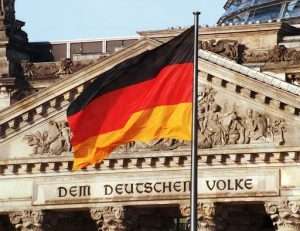
Germany is anticipating an inflation rate drop as the national preliminary inflation data is set to be released 1200 GMT. This reading surfaced after regional inflation figures showed inflation plunging in the month of May.
Some German states including North Rhine-Westphalia yielded a tamed consumer price inflation, with a 0.5% year-on-year compared to 0.8% in April.
The decelerating inflation, mostly due to plunging oil prices, is a new compounding reason for the European Central Bank to increase easing efforts by devising more stimulus packages in the coming months.
This is on top of ECB’s long list of easing measures to cushion the severe economic impact of the coronavirus pandemic, one of which is the 1.1 trillion euros ($1.21 trillion) worth of bond buys and loans capped by deep negative rates.
The ECB aims for a lower than 2% inflation rate for the European bloc but has failed to reach the target numbers for years even after consistent efforts of introducing stimulus packages.